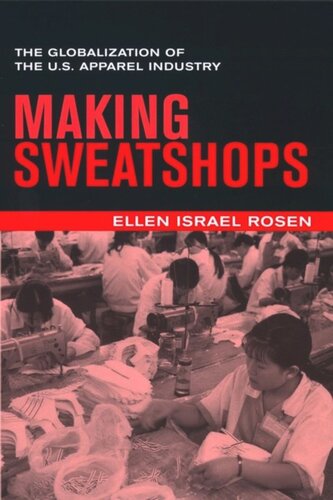

Most ebook files are in PDF format, so you can easily read them using various software such as Foxit Reader or directly on the Google Chrome browser.
Some ebook files are released by publishers in other formats such as .awz, .mobi, .epub, .fb2, etc. You may need to install specific software to read these formats on mobile/PC, such as Calibre.
Please read the tutorial at this link: https://ebookbell.com/faq
We offer FREE conversion to the popular formats you request; however, this may take some time. Therefore, right after payment, please email us, and we will try to provide the service as quickly as possible.
For some exceptional file formats or broken links (if any), please refrain from opening any disputes. Instead, email us first, and we will try to assist within a maximum of 6 hours.
EbookBell Team

0.0
0 reviewsThe only comprehensive historical analysis of the globalization of the U.S. apparel industry, this book focuses on the reemergence of sweatshops in the United States and the growth of new ones abroad. Ellen Israel Rosen, who has spent more than a decade investigating the problems of America's domestic apparel workers, now probes the shifts in trade policy and global economics that have spawned momentous changes in the international apparel and textile trade. Making Sweatshops asks whether the process of globalization can be promoted in ways that blend industrialization and economic development in both poor and rich countries with concerns for social and economic justice—especially for the women who toil in the industry's low-wage sites around the world.
Rosen looks closely at the role trade policy has played in globalization in this industry. She traces the history of current policies toward the textile and apparel trade to cold war politics and the reconstruction of the Pacific Rim economies after World War II. Her narrative takes us through the rise of protectionism and the subsequent dismantling of trade protection during the Reagan era to the passage of NAFTA and the continued push for trade accords through the WTO. Going beyond purely economic factors, this valuable study elaborates the full historical and political context in which the globalization of textiles and apparel has taken place. Rosen takes a critical look at the promises of prosperity, both in the U.S. and in developing countries, made by advocates for the global expansion of these industries. She offers evidence to suggest that this process may inevitably create new and more extreme forms of poverty.